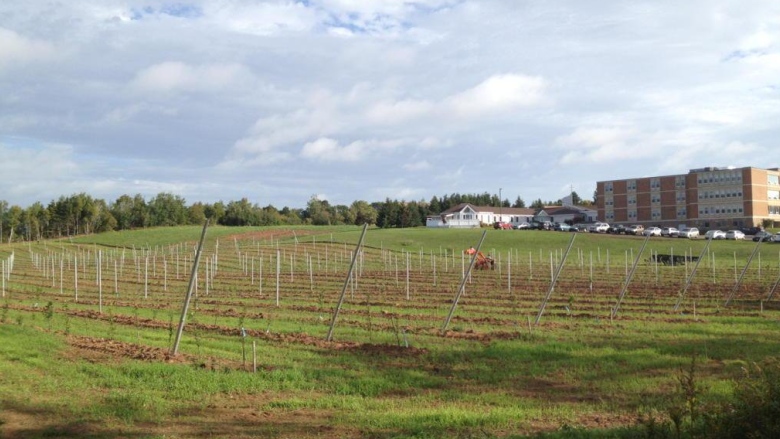New garden at The Mount seniors' home will help feed residents
'We’re looking back to the time when the sisters did operate this almost like their own sustainable farm'

The Mount Continuing Care seniors home in Charlottetown wants to put its large plot of land to good use by growing some of its own food.
The Mount has about eight hectares available on its property next to UPEI. To keep the plan simple and achievable, administrators said they'll start by using just a small section — less than half a hectare.
"We're looking to do things that aren't as readily available, or are expensive to grow," said administrator Lindsay Dickieson.

The home already planted an apple orchard last year and has some honeybee hives.
The plan is to plant cover crops this year to prepare the soil next year for vegetables to supply The Mount's own kitchen.
The facility feeds 100 residents three meals a day plus snacks, and already tries to source a lot of its produce locally.
Growing its own food would cut costs, particularly with more expensive vegetables like cauliflower, Dickieson said.
Legacy of the land
Staff at The Mount were motivated by a desire to continue the history and legacy of the land — the property was previously St. Mary's Convent, home to the Sisters of St. Martha.

"We're looking back to the time when the sisters did operate this almost like their own sustainable farm," said Dickieson.
"They produced a lot of their own food and did a lot of things for themselves."
The Mount staff won't do the farming themselves — they're looking for someone with whom to to partner. Local farmers have expressed interest, said Dickieson, but the facility isn't sure yet exactly how it will manage the partnership.
It might set up a system where a farmer uses the land, and in exchange gives the home a portion of the produce or allows them to buy it at a reduced rate.
Residents will be invited to help out if they want to. There is also a more accessible garden on the property that has been very popular.
"We thought how can we make this as community-focused and community-oriented as possible?" said Dickieson.